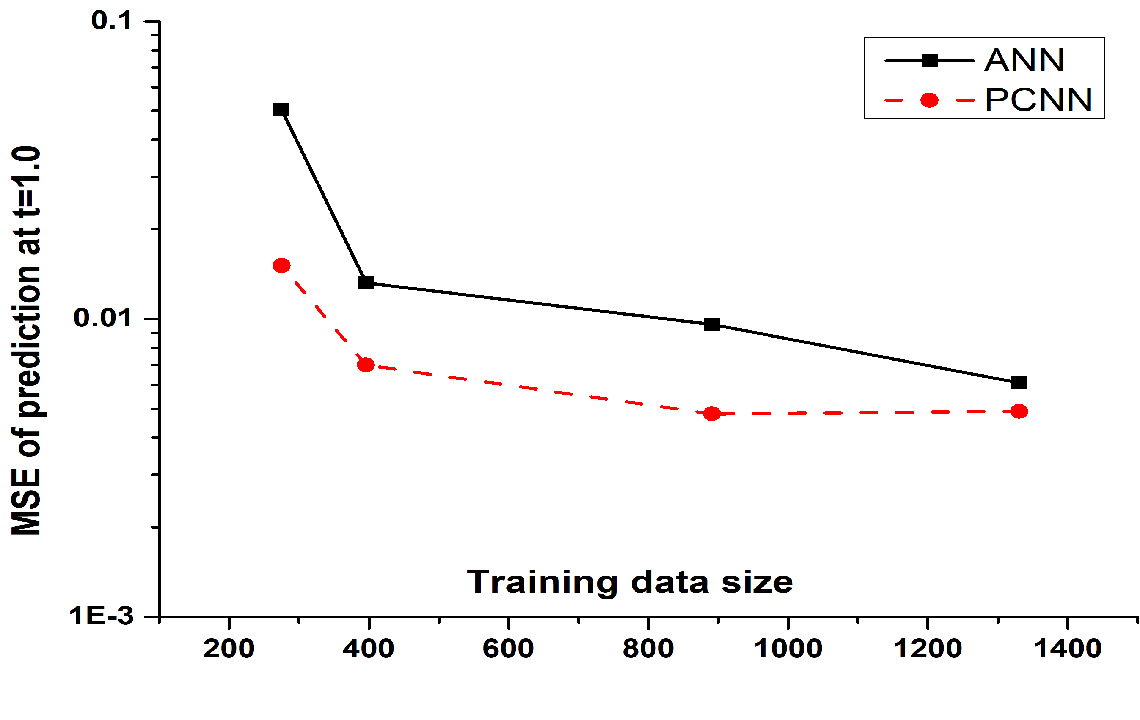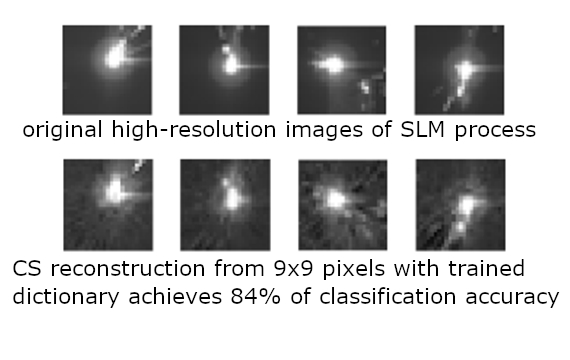Project: Physics-Informed Machine Learning
The objective of this research is to develop new machine learning frameworks and methods to improve the training efficiency with limited data to solve complex engineering problems.
Multi-fidelity physics-constrained neural networks (PCNN)
Lack of data for training is always the challenge to build machine learning models that can predict acurately, especially for solving high-dimensional engineering problems. In the new architecture of neural networks, engineering knowledge is combined with limited training data to accelerate the learning process and applied to solve modeling and simulation problems.
Physics-constrained dictionary learning
In-situ manufacturing process monitoring faces the challenges in sensing and communication, such as the resolution of sensors and sensor accessibility. We are developing a new dictionary learning approach in compressed sensing to enable cost-effective process monitoring and diagnostics with dedicated signal processing techniques for vibration signals and images.

